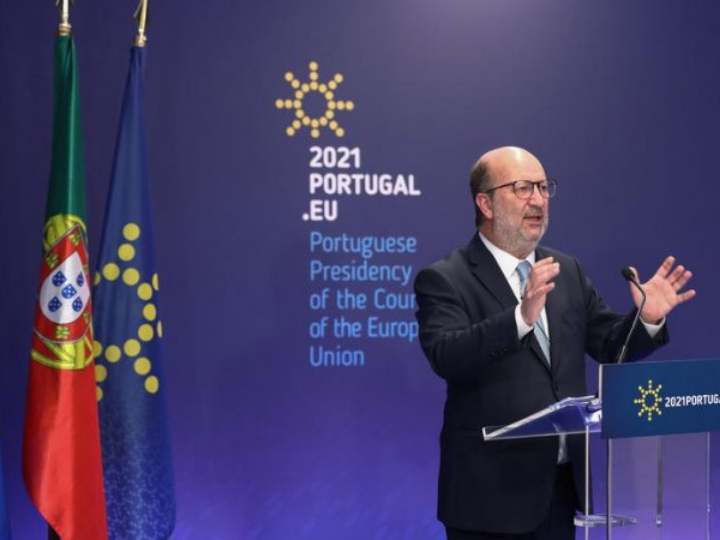by Beatriz Ceu, Joana Gomes and Kira Taylor
Europe’s current economic model “has no future” and does not respond to “major environmental challenges”, Portugal’s prime minister Antonio Costa said on Friday, calling for the adoption of new models such as the circular economy and sustainable bioeconomy.
The COVID-19 pandemic highlighted the need to “redesign” the economic development of the EU, which recently committed itself to becoming the first climate-neutral continent by 2050, said Costa who was addressing the opening session of a high-level conference ‘Climate Change – New Economic Models‘.
“The economic model that has led us to this point has no future and does not allow us to respond to the major environmental challenges: combating climate change, reducing pollution and reversing the loss of biodiversity,” said Costa, whose country currently holds the six-month rotating presidency of the EU.
According to Costa, the EU’s response to the impact of the pandemic must encompass not only support for economic and social recovery, but also the promotion of a “new development [that is] fairer and more equitable and within the limits of natural systems” that sustain life.
Frans Timmermans, the European Commission’s executive vice-president in charge of the Green Deal, called for a more circular economy to reduce emissions.
“Our pattern of extracting, using and disposing of resources has to change. We have to completely change the way products are designed, processed, manufactured and consumed,” Timmermans said at the conference.
“The market needs products that can be produced, used, reused, recycled and reused again. We must have products that are increasingly made from recyclable materials. This will help us grow, while at the same time reducing the pressure on our environment,” he added.
Today, the world consumes about one and a half times its capacity to provide renewable and non-renewable resources. By 2050, global population could reach 9.6 billion and estimates suggest that the world would need three planets to sustain the current way of living.
The EU launched its circular economy action plan in March last year, calling for a longer life for products and better repairability. In a recent resolution on the plan, the European Parliament put forward ambitious proposals for this, including mandatory targets to reduce waste.
Europe needs to act quickly to decouple growth from emissions and resources and rebalance our life with the planet, Timmermans said at the conference.
The international event was hosted by Portugal’s ministry of environment and climate action under the six-month Portuguese presidency of the EU. It aimed to discuss the contribution of new economic models, including the circular economy and sustainable bio-economy, in combating climate change while promoting a fair economic and social recovery within the limits of nature.
Timmermans also suggested using the €750 billion COVID recovery fund to transform the EU’s economy to a more circular model.
“If we spend wisely, we can ensure that what we produce is sustainable, that energy is clean, that we have a resource-efficient economy, where our cities are green and where waste is minimised, and nature is protected and restored,” he said.
“In the end, this is not about saving the planet, but about saving ourselves. Only by restoring the balance with our environment will we be able to have a better life for ourselves and also for all those who come after us,” he added.
Portugal was one of the first countries to submit its draft recovery plan to the European Commission. Lisbon aims to dedicate 47% of its EU funds to climate transition while ensuring no investments are harmful to the environment, according to Costa.
*first published in: www.euractiv.com




 By: N. Peter Kramer
By: N. Peter Kramer
